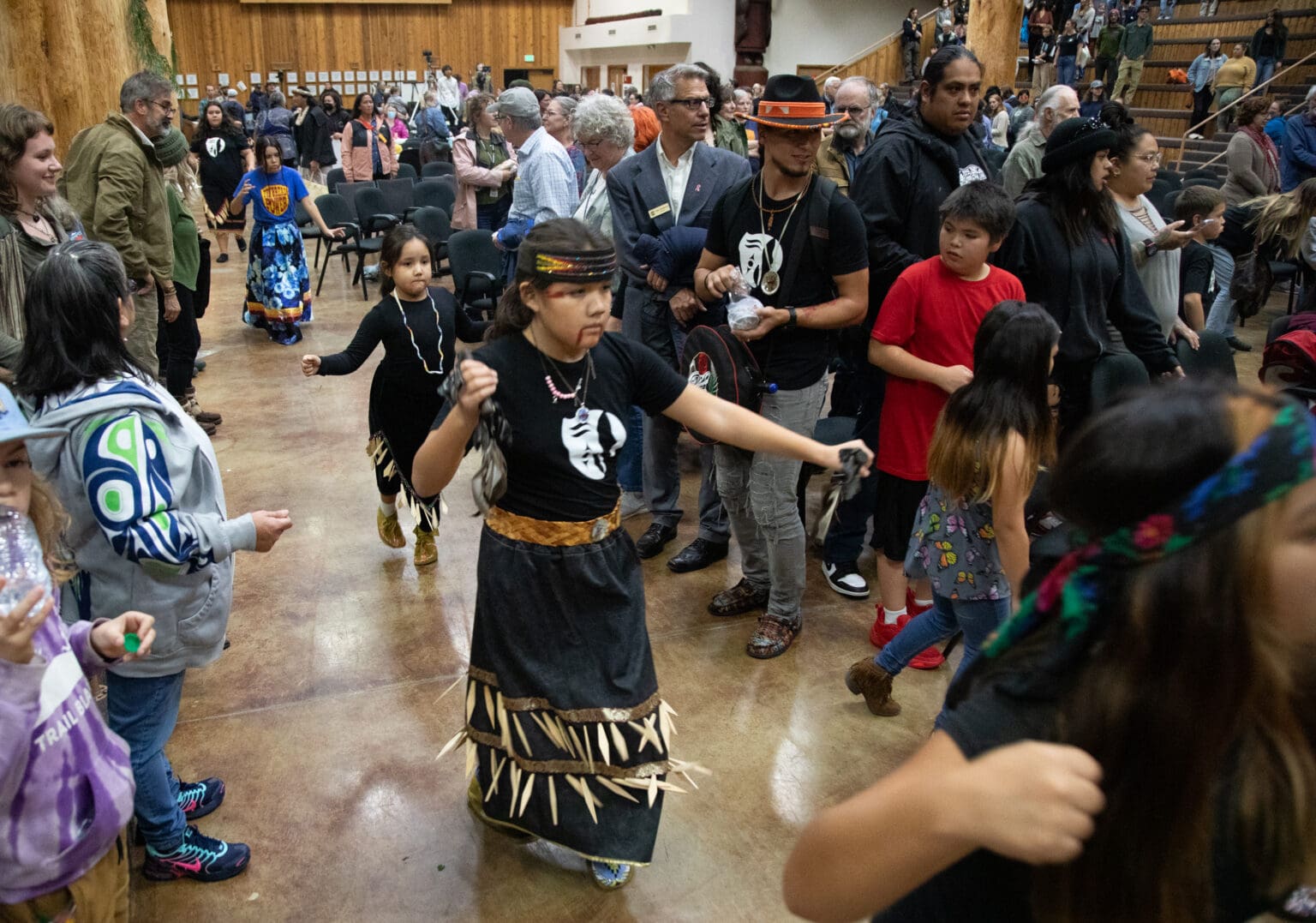The Lummi Nation welcomed hundreds of community members into the Wex’liem Community Building Monday night, Oct. 9, for salmon, song, dance and speeches to mark Indigenous Peoples Day.
With the Blackhawk singers opening and closing the event, the celebration featured Indigenous people from across the region.
Keynote speaker and doctor Evan Adams, from the Tla’amin Nation north of Powell River, British Columbia, came to Lummi for the event to speak about Canadian Indigenous experiences and health care.
Youth speaker Santana Rabang of the Lummi Nation, Nooksack Tribe and First Nations Shxwhá:y Village spoke of her personal experience watching Indigenous people become more represented in mainstream culture. Several speakers from the Lummi Nation and surrounding tribes spoke at the event as well.

Rabang expressed excitement about the growing representation of Indigenous people in broader culture.
“We’re in an era right now where Indigenous representation is blooming and it’s such a beautiful thing to witness,” she said.
She referenced 40th District State Rep. Debra Lekanoff, a member of the Tlingit tribe; Debra Haaland, the U.S. Secretary of the Interior and the first Native American to serve as a cabinet secretary; and Quannah Chasinghorse, a model who has been on the cover of Vogue and National Geographic, as inspirational.
Adams also referenced the importance of representation. Adams is an actor as well as a doctor, and starred in the 1998 film “Smoke Signals.”

“[Indigenous people] should be on the red carpet, we should be singing and dancing, we should be hosting the community and celebrating ourselves, and we should be living large on our own territory,” Adams said.
Laural Ballew, the tribal liaison at Western Washington University and one of the organizers of the event, said the event wanted to highlight the experiences of all Indigenous people — part of the reason the event included those from across the region.
All speakers, despite their tribal affiliation, emphasized one point: despite attempts by colonialism and the American and Canadian states, Indigenous people are still here.

Lekanoff, who spoke after Adams’ keynote speech, praised the work of Native Americans across the continent sitting at decision-making tables and rising above historical trauma.
“We weren’t supposed to be here,” she said. “Generations of our people lived through historical trauma. Everything you could possibly think of has happened to us.
“Our hair isn’t supposed to be this color. It’s not supposed to be this long. Our eyes aren’t supposed to look this way. We aren’t supposed to carry our Indian names. We’re not supposed to have our culture, we’re not supposed to remember the drums, the beads, the feathers, the songs. Our bloodlines aren’t supposed to be here, but we are still here.”





